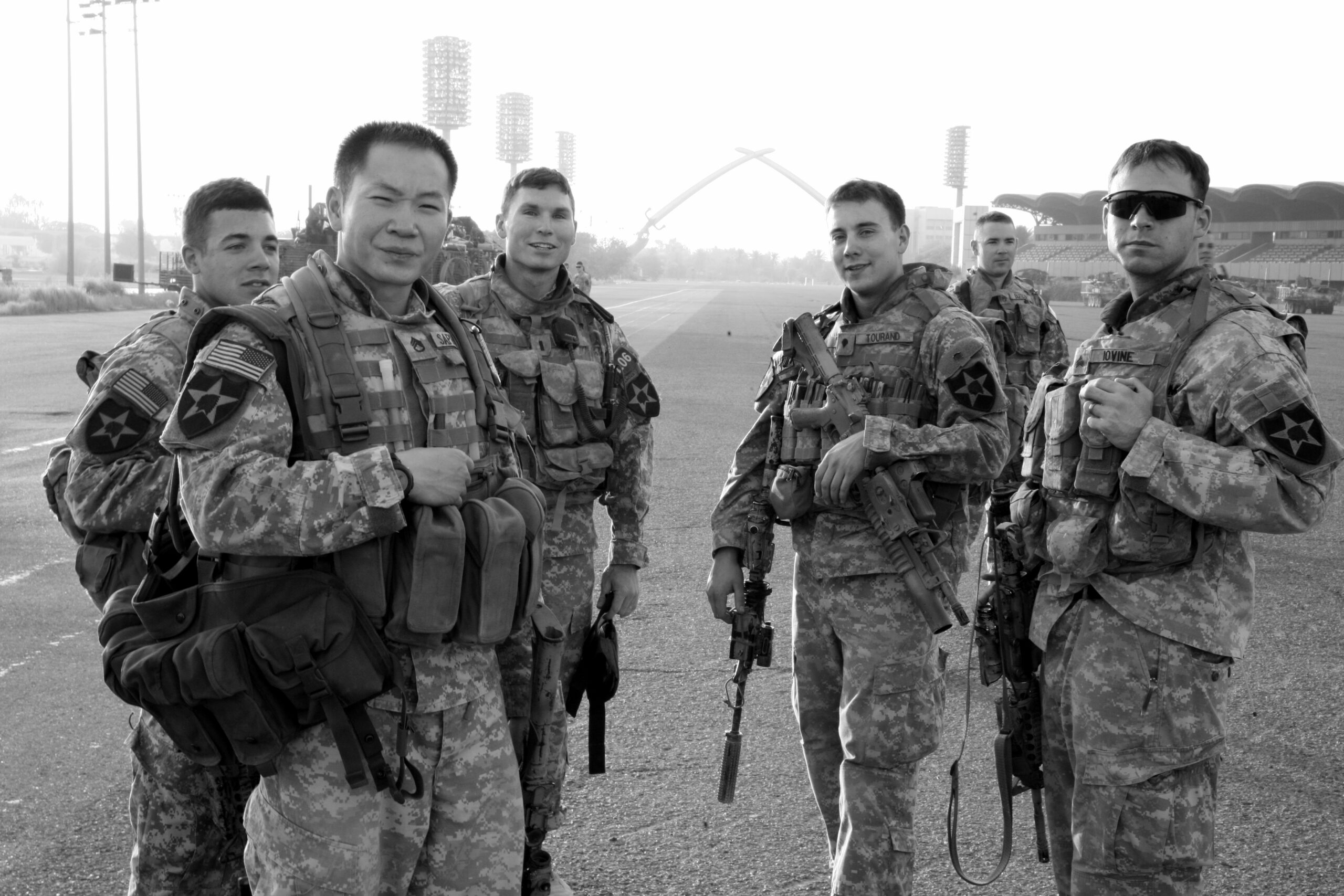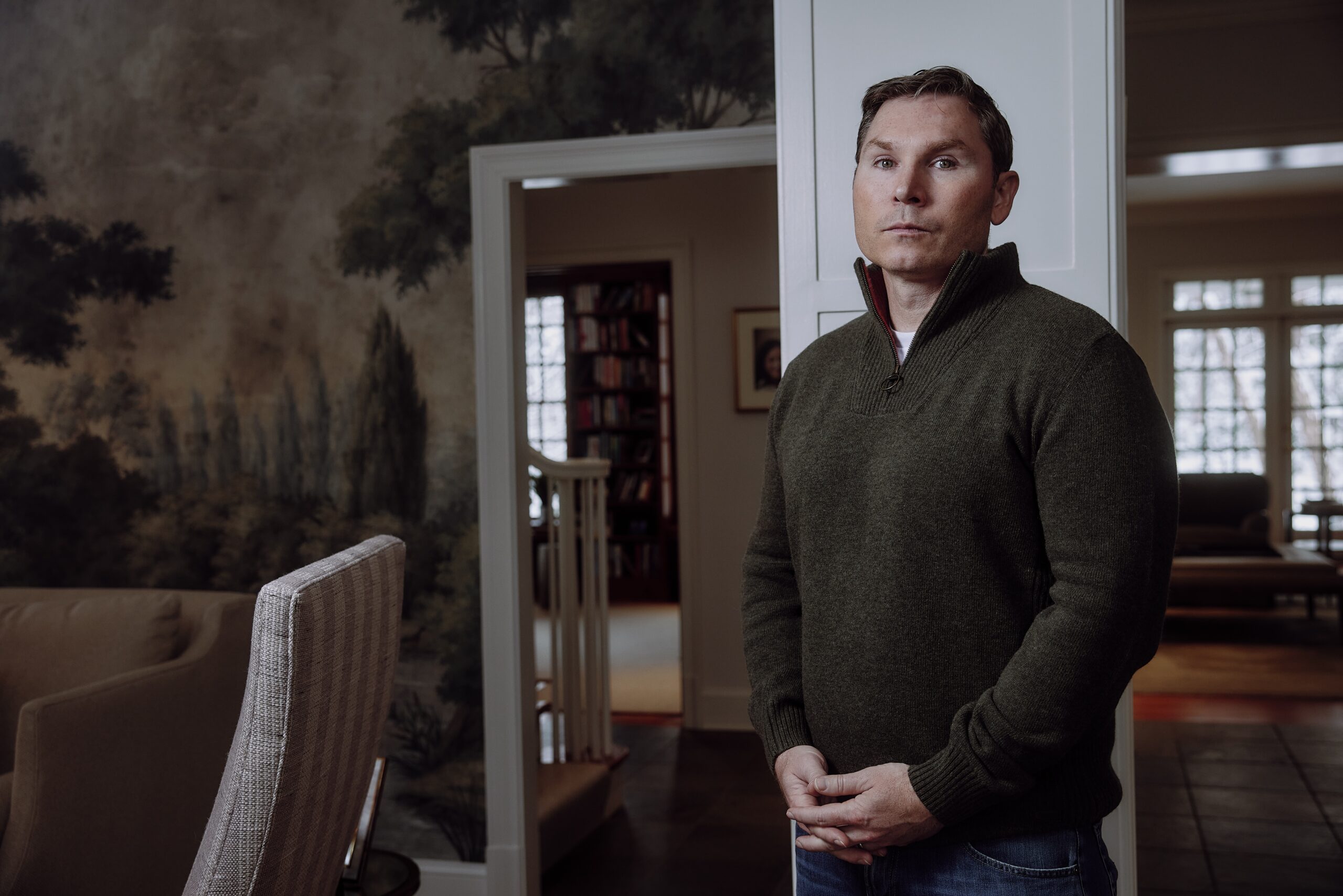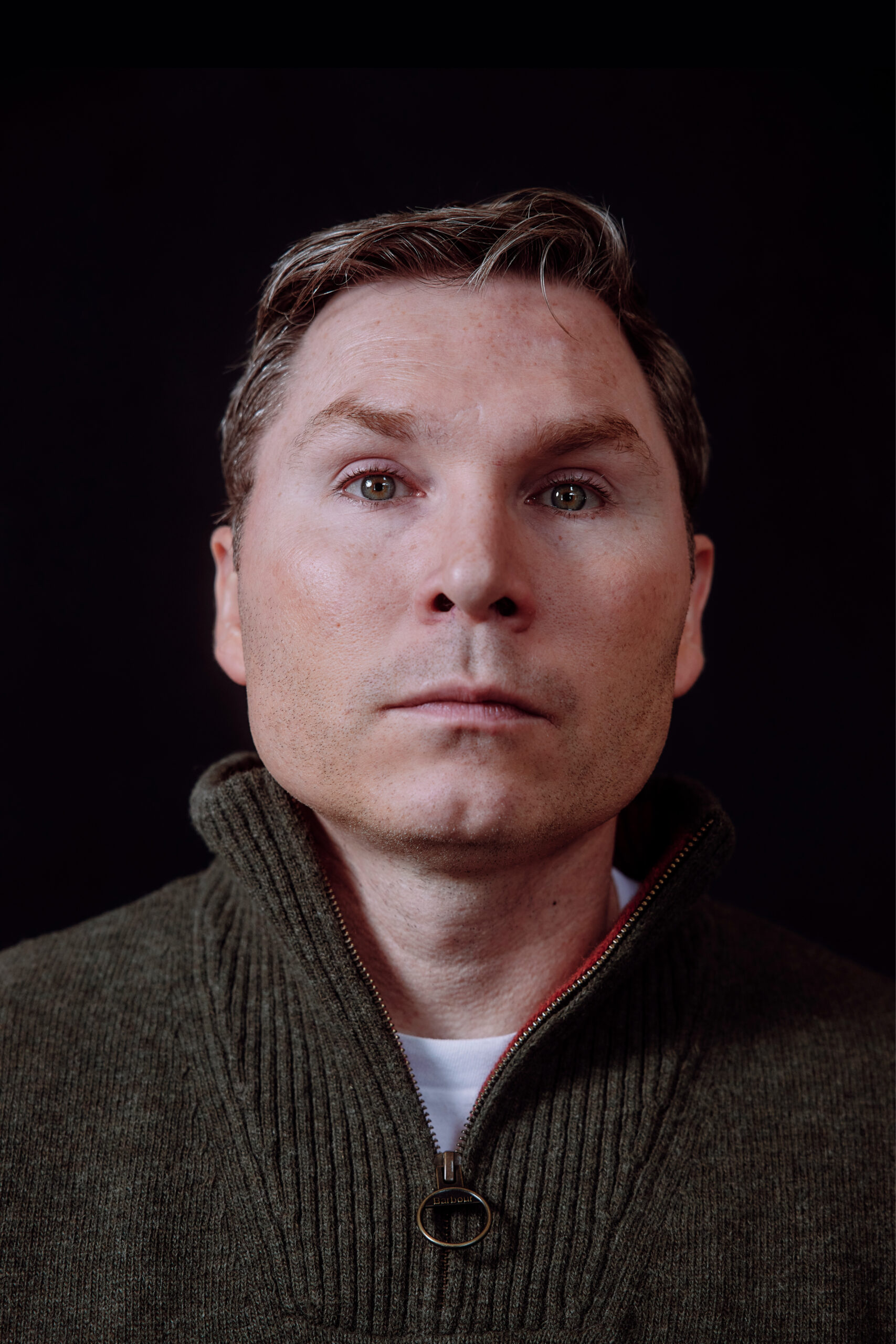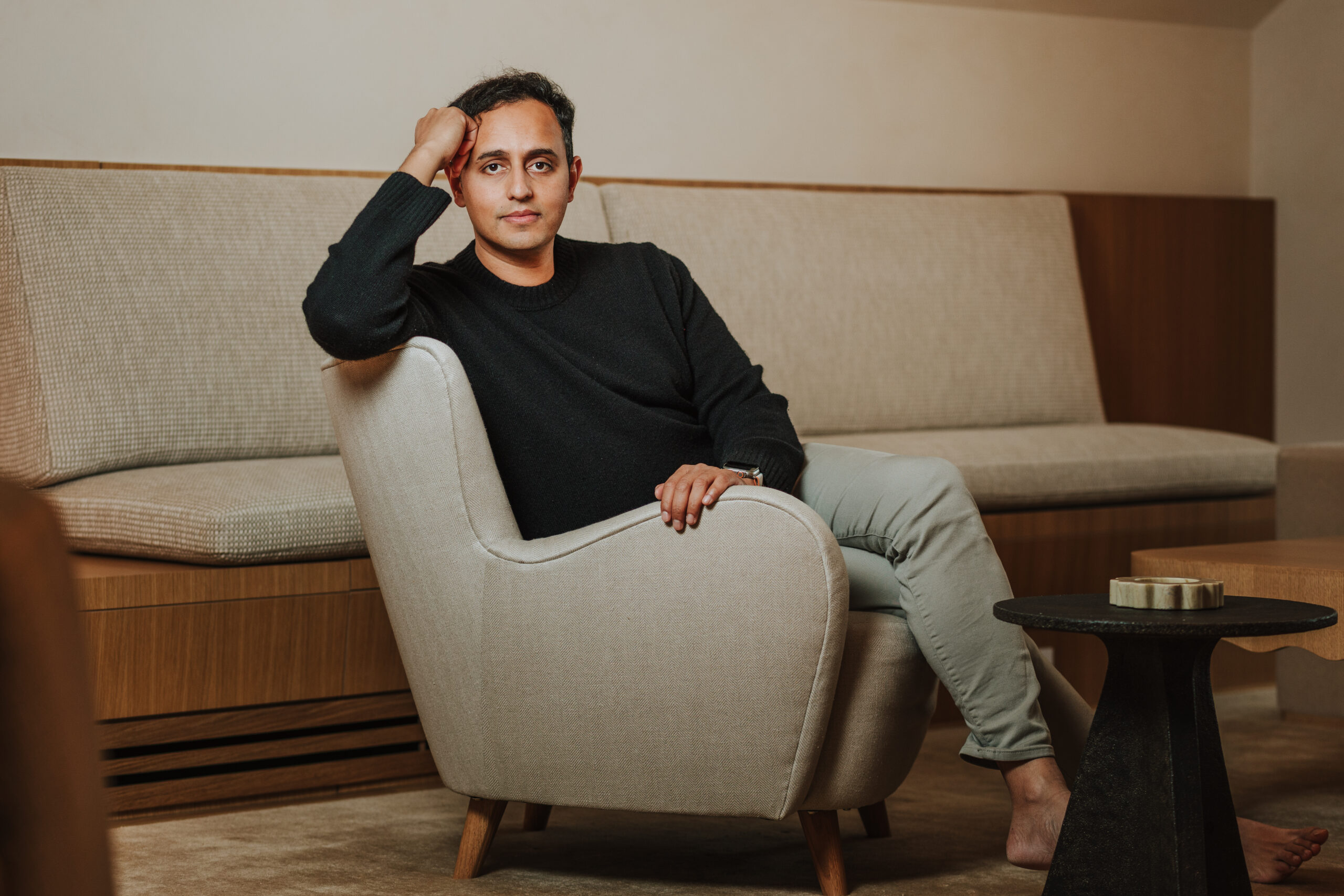Click here to subscribe to print for your office or home.
Each issue, we showcase someone doing the thing they seemed destined to do. We call these people Pathfinders because, beyond the direct impact of their creations, they set an example by identifying their life’s work—and relentlessly pursuing it.
Blake Hall’s path to founding ID.me began with his experience commanding an elite platoon of scouts and snipers in Iraq. When he returned home, he discovered a problem: veterans suffered from identity theft at nearly twice the rate of other Americans, while simultaneously struggling to prove their service status to access hard-earned benefits. Since its founding in 2010, ID.me has grown into America’s largest digital identity network, with over 140 million members, as it pursues a bold vision: a single secure login for everyone’s online identity.
Colossus Review: You were 23 when you were deployed to Iraq, in charge of 32 scouts and snipers in your platoon. How do you reflect on the experience of that responsibility at such a young age?
Blake Hall: Carrying the lives of 32 people, and the hopes of their families, is an overwhelming responsibility. It’s like looking down at the ground from a great height—the enormity of what’s at stake can incapacitate you if you confront the reality of the situation directly. To do my job, I needed to let go of the scenario I feared the most, losing my men, to focus on the tasks that would reduce risk for my team.
There’s a paradox that you often have to let go of what you want the most in order to get it. In reality, I had to push what I wanted so deep down into my subconscious that it didn’t impact my performance. That mindset allowed me to influence the variables I controlled, while admitting I had no control over the external variables that might not go my way. I knew that if one of my men died under my command, I would only be able to live with myself if I had done everything I could to be the best leader for them.
I’m so grateful that each of them came home to their families. After we got back, on the last night I led the platoon, two of my snipers pulled me aside. What they told me about how the platoon felt about me made me cry. I’m so glad that I didn’t let them down.
You’ve said that “the whole point of leadership is to be inversely correlated with context.” Can you explain what you mean by that, and how to do it?
Most humans don’t like to work. On a day-to-day basis, most prefer what’s easy over what’s hard. But if you ask someone to look back on their life, many wish they’d lived a life that made a difference, versus an easy life.
Leaders help teams believe in a mission that unfolds over a long period of time. By helping the team understand what their current work means for their future self and for others, they can shape the team’s perspective to care more about the totality of their life than about their current pain and suffering. To me, this is strategic leadership. Strategic leaders wake people up to their true potential. They animate the world.
By helping the team understand what their current work means for their future self and for others, they can shape the team’s perspective to care more about the totality of their life than about their current pain and suffering.
–Blake Hall
Along the way, there are ebbs and flows as the organization and teams fare better or worse over time. When things go well, recruiting and fundraising are easy, but teams get complacent and distracted. When things aren’t going well, some people lose faith and leave, so recruiting and fundraising get harder.
Operational leaders are like gyroscopes. They acknowledge the context, communicate the big ideas, and orient the team to a better way of working together. When we were in combat and got the briefing about ‘God mode’, the risk-taking psychological state soldiers enter around month six of combat, my immediate thought was, “All gas, no brakes. Not good. Someone had better put on the brakes.” That someone is the leader.

Hall with his sniper teams in the Green Zone in Baghdad, Iraq.
The military is renowned for building effective leaders. Where does the corporate world tend to go wrong?
The military has a positive selection bias because it attracts people willing to give their life for others. For that reason, any organization with a worthy mission, based on service and purpose, will have the advantage of attracting good and capable people to it.
The military does an exceptional job training leaders and establishing core competence in domains. Now, training isn’t always an efficient use of time in the military. However, the amount of time invested to train leaders stands out from corporate America.
At the same time, our peacetime military suffers from many of the same issues that plague corporations. The best politicians, not the most skilled generals, tend to accrue power when times are soft. I think the same is true for many large organizations.
When times are hard, the most skilled generals, like General Petraeus, rise to the top out of necessity. There are lessons in that for corporate America. If you can ensure your most skilled leaders are in charge at all times, you will produce outsized value.
You said war “infused lightning in your bones”. Can you talk about how the experience shaped your sense of purpose in life when you finished your 15-month mission in Iraq?
I am definitely an addict. Adrenaline is a powerful drug. Every mission brought a different kind of high. But I knew if I kept playing that game in combat, eventually I would die.
The great gift combat gave me was to show me that life is short. The real risk isn’t founding a company with an ambitious mission that will likely fail; it’s ending up as a cog in the machinery of a huge bureaucracy, and getting stuck there.
I thought a lot about my friends who gave their lives for America. They didn’t have the opportunity to go for it. I wanted to make my life count for them.
You can’t take anything with you when you die. You can only make a positive impact on the lives of other people. That’s what will endure. And I think that happiness comes from helping others. So, that’s what I’m doing with every fiber of my being.
When did it become obvious that you could, and would, devote the next phase of your life to the idea behind ID.me?
When does a grain of sand become a pile? It’s like the sorites paradox—I knew I had something burning inside me by the second year of business school, after I got home from combat. I didn’t know it was ID.me specifically until late 2012. But I knew I would make a positive change in the world, or spend my life trying to effect that change.
What are the most effective ways to instill a sense of mission across a large number of people in a corporate setting? How do you do it at ID.me?
Humans connect with stories, not numbers. The most impactful way to reinforce the mission is to share stories of us living it. It’s about celebrating our teammates who have lived our cultural values to help a specific customer or person.
How do you measure success in life?
I measure success in business by coming through for people who have trusted me.
The best phone call I ever made as CEO was to our first VP of Product. We hadn’t talked in a few years when I called him in 2021 to tell him about our Series C, and that we’d become a unicorn. He was driving home at the time, having been to see a financial counselor with his wife, to discuss how they would pay for their triplets to go to college.
I told him he would be just fine because there was a secondary offer tied to the Series C and he was a multimillionaire. He took a deep breath, paused, and then asked me for a few seconds to pull the minivan over to the side of the road so he could cry.
In my personal life, I want my children to want to come home when they’re older, to know that my wife and I love them unconditionally, to know right from wrong, and to be brave enough to chase their dreams.
You’re allowed to invite four people (dead or alive) to dinner at your house. Who’s coming and why?
Aristotle, Alexander the Great, Thomas Jefferson, and Benjamin Franklin. I love to learn. Aristotle mentored Alexander the Great. Jefferson and Franklin breathed the greatest experiment in the history of mankind into life: America. Civilizations, culture, humans, leadership, war, innovation—I’d love to ask questions and just listen.
If you were making a study guide for a young entrepreneur, what three pieces of writing would you recommend they study?
Steve Blank’s The Four Steps to the Epiphany explains the four stages of building a company by using the scientific method to validate graduation to the next phase. Geoffrey Moore’s Crossing the Chasm applies this method to targeting customer segments over time, according to individual and corporate psychographics. Clayton Christenson’s Disruptive Innovation theory explains market entry and how to unseat large incumbents.
If a founder has deep expertise and differentiated skill, the wisdom in these three will give them all they need to win given enough time and grit—and assuming they don’t run out of money.

Snipers in Dora, a neighborhood in Baghdad. Hall said: “If there’s hell on Earth, it was probably Dora.”
What unexpected plot twist in your life looked bad at first but turned out to be a gift?
The decision to decline McKinsey’s full-time offer and start ID.me. I signed a $48,000 lease for a Washington DC townhome, where our technical team and customer support team could work, when I only had $3,000 in my checking account, $5,000 in our business account, and maxed-out credit cards I had used to fund the business. I sold my dream car to free up cash to finance the business. Things did not look good.
You were heavily influenced by the examples set by your father and grandfather, who was a World War II hero. As you raise your own children, how do you think about passing down values while letting them find their own way?
When they’re young, they need to be pushed to try things because humans have an aversion to trying new and different activities. Once they find something they love, then my job is to nurture that interest so they can chase their passions without regard for my own.
My dad was a West Point grad. I got into West Point and Vanderbilt. He sat me down and said, “If you don’t know that you want to go to West Point, you’re going to hate the next four years of your life.” I picked Vanderbilt, and that was one of the best decisions I ever made in my life. I’m so grateful for that conversation, and the example he set.
The real risk isn’t founding a company with an ambitious mission that will likely fail; it’s ending up as a cog in the machinery of a huge bureaucracy, and getting stuck there.
–Blake Hall
Do you have a morning routine? What do you protect most fiercely in your daily schedule?
I do my best thinking in the morning. I wake up, make coffee, play with my kids a little, and then try to get to work as quickly as possible to get into flow on hard problems.
What do most people not understand about identity and what you’re trying to achieve?
We’re building Visa in 3D because identity should be everywhere you want to be, to make life safer and easier. Identity is so much bigger than just payments.
Imagine going back to the early 1950s before Visa existed. You might know what the world should look like with Visa to streamline payments. But how would you explain Visa to merchants and everyday people in a way they would understand?
At various stages of ID.me, people would say, “Oh, you provide a Single Sign On—but just for the military right?” That was at 10 million users. Now, they say, “Oh you provide a Single Sign On—but just for government websites right?” This is at 140 million users.
In the spirit of ‘show, don’t tell’, Americans will begin to understand ID.me when they experience life events like retirement or taxes or buying a home; when they see ID.me’s green button makes it safer and easier to access the things they need.
Among all your achievements, which one would you most like people to understand deeply, and why?
I’m most proud that the men I led in combat respect me. To me, this is the ultimate test of leadership and far more important than any medal or award. Earning informal credibility from a group of people who are deeply skilled at their jobs gives me more intrinsic satisfaction than anything else because it indicates true skill in reality. And I believe the leader of any group should be the most skilled at leading that group.
I’ve carried that mindset with me every day leading ID.me. I try to learn as much as I can, as fast as I can, where it matters the most—to help the team and earn my title.
What product, service, or experience do you recommend more than any other? (Aside from ID.me)
I used Starlink last week and it was so fast. So, if you’re reading, major airlines and Amtrak, please do all of us travelers a favor and get high-speed internet going everywhere!

JARED SOARES
Click here to subscribe to print for your office or home.

